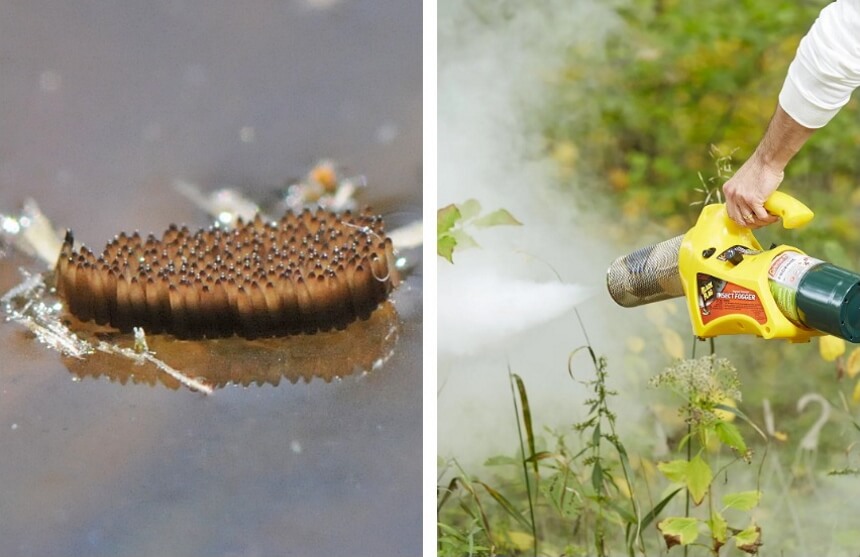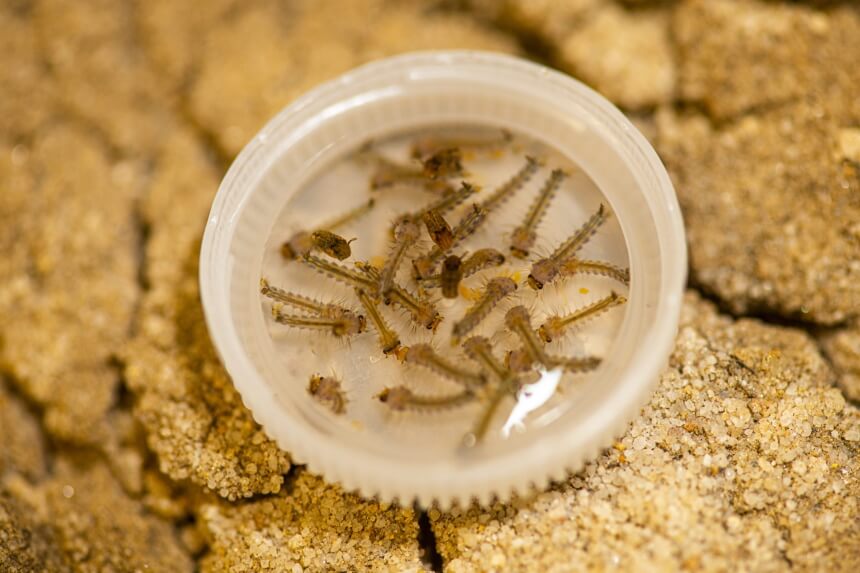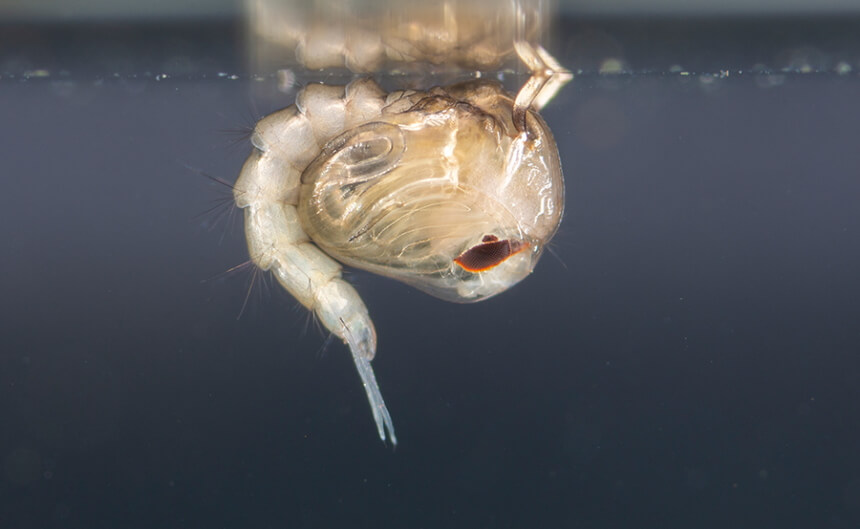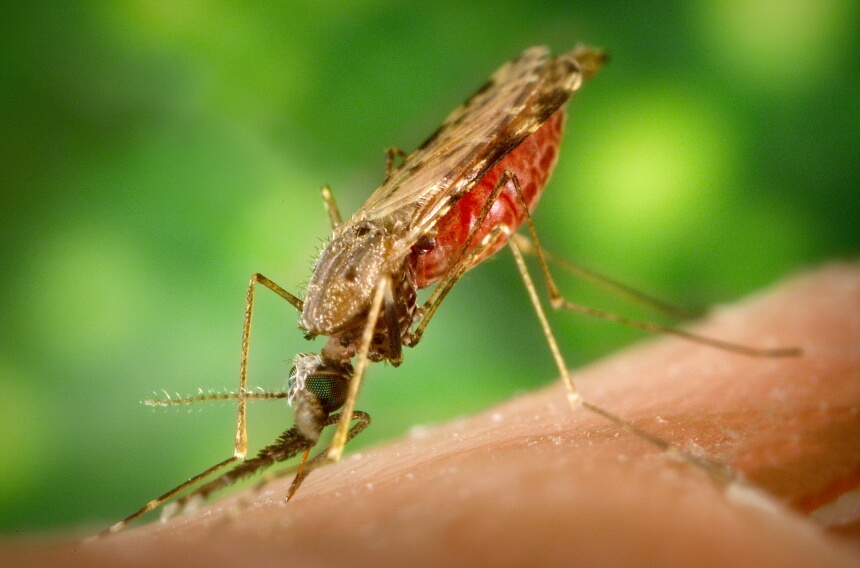

In the U.S., there are about 200 or more species of mosquitoes. As such, it’s not surprising that you may hear one buzzing around your ear as you try to nap on the porch. What’s worse is that the most common species is the Anopheles mosquito. This is the type responsible for transmitting malaria. Of course, for anyone looking to control the mosquito population near their homes and reduce the chances of being infected, the question, “where do mosquitoes live?” comes up often.
It’s worth noting that, unlike ants or spiders, mosquitoes rarely leave evidence of their habitats. They also may live in different places at different cycles of their life. However, if you want to eliminate and control the population from the egg stage to the adult stage, here’s a breakdown of where you’re most likely to find them.
In their earlier stages of life, mosquitoes are generally aquatic, which can be seen in where they lay their eggs. However, this changes as they mature, as you’ll see in the sections below.

It’s worth noting that in determining where mosquitoes do not live, their species matters a lot. The eggs of the Aedes Aegypti can withstand drying out and can hatch up to several months after they’re laid.
Conversely, Anopheles mosquito eggs can’t stand drying out and need to be submerged in water. They also hatch within two or three days. As such, if you’re wondering where anopheles mosquitoes live, it’s typically somewhere close to stagnant water. After all, they lay their eggs directly on the water surface.
Nevertheless, the one thing that different types of mosquitoes, including, Zika and Asian Tiger mosquitoes, have in common is that their eggs need water to hatch. As such, if you have a pond near your house, that may be where all the mosquitoes are breeding. The same is true for puddles of water that form after a storm or that marshy backyard.
If it’s the rainy season and you just can’t get rid of all the wet spots in your yard, you may want to consider the best propane mosquito traps. They can help eliminate the adult mosquitoes in your yard before they lay any eggs.
Also, according to most reviews, one of the most effective outdoor mosquito population control tools is the Cardinal backpack mosquito fogger. It features a gas-powered engine and a blower to get liquid pest control treatments and disinfectant sanitizers all around your backyard. It also offers spray coverage of more than one acre in 30 minutes or less.

According to the National Library of Medicine Trusted Source Microorganism-Based Larval Diets Affect Mosquito Development, Size and Nutritional Reserves in the Yellow Fever Mosquito Aedes aegypti (Diptera: Culicidae) - PMC Mosquito larvae feed on organic detritus from the environment, particularly microorganisms comprising bacteria, protozoa, and algae as well as crustaceans, plant debris, and insect exuviae. Little attention has been paid to nutritional studies in Aedes aegypti larvae. www.ncbi.nlm.nih.gov , mosquito larvae primarily feed on microorganisms such as bacteria, algae, crustaceans, and protozoa. The diet may also affect their development into adulthood. Nonetheless, larvae need to be in the water to survive and die out if their habitat dries out. This is also why one of the most touted mosquito control methods is draining any stagnant water near or in your home.


Given the prevalence of damp spots in and around our homes, it’s no surprise that they also move into our houses. Additionally, they can just bite you for a quick meal. Of course, if there seem to be more mosquitoes in and around your home, it might be time to consider the best mosquito killers. They’ll eliminate the pests both inside and outside the house while you look for other ways to control the mosquito population.
According to Entomology Today Trusted Source Male Mosquitoes Don't Want Blood But Still Find You Very Attractive A new study shows that male mosquitoes hover near humans but tend not to land or bite—a behavior researchers suspect is a tactic for finding female mates. entomologytoday.org , male mosquitos do not bite. It’s the females you have to worry about. Nevertheless, the males do fly around humans to increase their mating chances since they know females will come looking for food. However, when mosquitoes are not looking for food, laying eggs, or trying to boost their reproductive chances, they hide elsewhere.
Often, they prefer spots without harsh sunlight or wind. You can therefore find them in tall grass, under leaves, inside logs or hollow trees, etc. This is typically where mosquitoes live during the day. But where do mosquitoes live in the house? They can live anywhere as long as it’s warm, humid, and there’s no strong breeze.
However, once they come out, reviewers recommend the CherryPig Bug Zapper, which, thanks to the purple LED light, can attract the bugs and kill them before they become a bother. You may also want to compare it with the best indoor mosquito killers before you decide which option best suits your mosquito problem.
As for where mosquitoes live in winter, it’s a fairly common question since you won’t see many of them flying around. Mosquitoes spend their winters differently depending on species and the weather around them. For instance, it’s not uncommon for the pests to be active all year round in tropical areas. However, in temperate climates, some hibernate as adults while others hibernate as embryos in eggs. There’s also a tiny population that hibernates as larvae.
Ultimately, where mosquitoes live will depend on the species and whether the eggs can handle drying out or not. It also depends on where they have the most access to food and mating opportunities. This is why there are many Anopheles mosquitoes around human settlements that are near stagnant water. The pests can breed, feed, and lay eggs in the same area. So, where do mosquitoes live? The simple answer could be in your backyard, depending on how well-maintained it is. As such, the best course of action is to eliminate breeding grounds, wet areas, and even tall grass and leaves that the bugs may be hiding under.